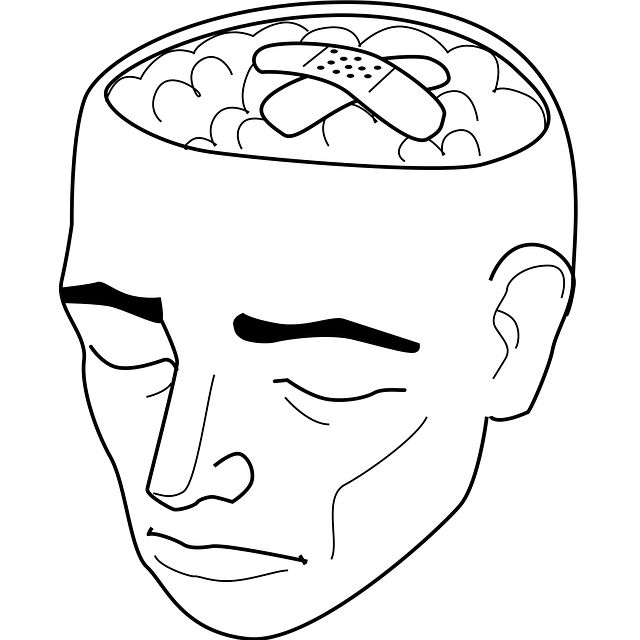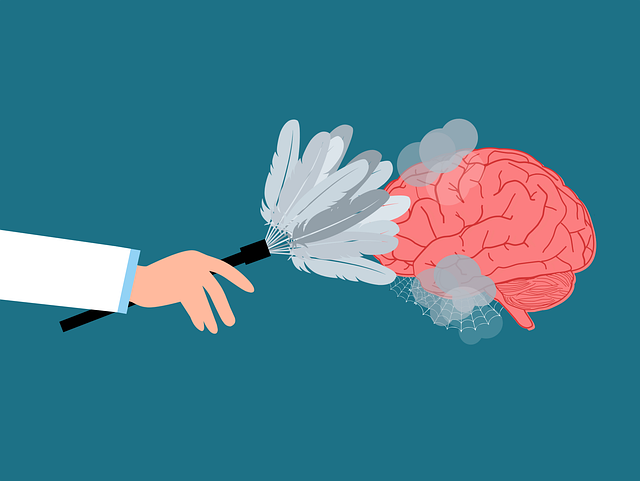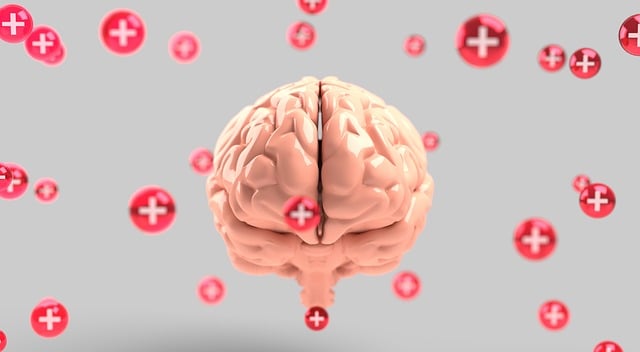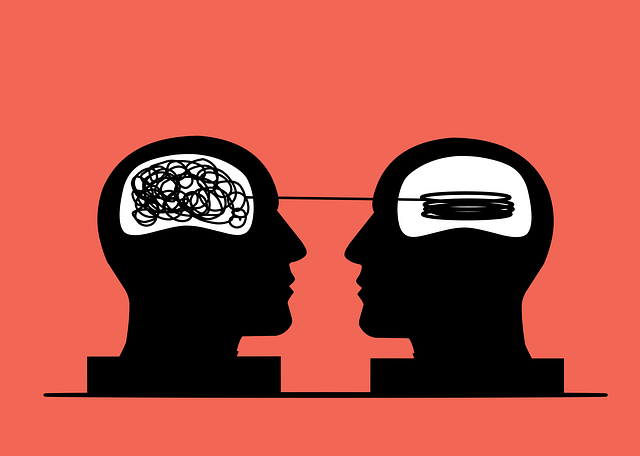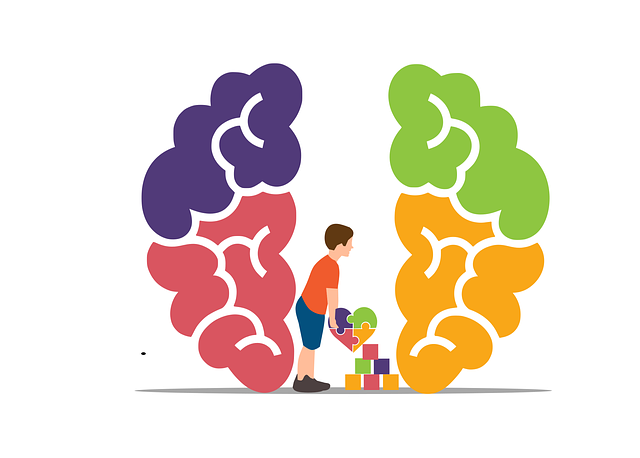Mental health advocacy is vital in supporting vulnerable populations, focusing on early intervention for children through first responders like teachers and community leaders, who identify emotional issues and facilitate therapy. These efforts combat stigma and promote mental wellness. For first responders, specialized programs address PTSD and provide tools like mindfulness and conflict resolution to manage stress. Community-based initiatives bring therapy directly to hard-to-reach groups, fostering a culture of support. Empowering individuals to take charge of their mental health through education is key; early access to therapy for children and stigma reduction in communities lead to improved public mental health outcomes.
Mental health advocacy is a powerful tool for creating a supportive society. This article delves into various aspects of this crucial initiative, exploring how awareness and support can transform lives. We examine therapy’s impact on children through early intervention, highlighting its potential to mitigate future mental health challenges. Additionally, we focus on the unique struggles faced by first responders and their increased need for mental health advocacy. Effective community-based programs are examined, offering strategies for success that empower advocates and drive sustainable progress.
- Understanding Mental Health Advocacy: The Need for Awareness and Support
- Therapy for Children: Early Intervention and Its Impact
- First Responders: Their Unique Challenges and the Role of Mental Health Advocacy
- Effective Initiatives: Community-based Programs and Their Reach
- Strategies for Success: Empowering Advocates and Sustaining Progress
Understanding Mental Health Advocacy: The Need for Awareness and Support

Mental health advocacy plays a pivotal role in creating a supportive environment for individuals facing various challenges, including children and first responders. It involves raising awareness about mental health issues, breaking down stigma, and promoting understanding to ensure everyone receives the necessary therapy. In today’s world, where mental well-being is increasingly recognized as essential, advocates strive to foster a culture of care and support.
The need for advocacy is especially critical when considering the unique struggles faced by children and first responders. Children often deal with anxiety relief issues stemming from trauma or daily pressures, while first responders frequently encounter situations that trigger post-traumatic stress disorders (PTSD). Through public awareness campaigns development centered around Mind Over Matter principles, communities can better equip themselves to provide therapy for children and offer critical support to first responders. Such initiatives ensure that those in need receive the help they require, fostering resilience and promoting overall mental health and wellness.
Therapy for Children: Early Intervention and Its Impact

Early intervention in therapy for children is a powerful tool to promote mental wellness and emotional well-being. With increasing awareness about the importance of mental health, many initiatives are now focusing on reaching young individuals at their most vulnerable stages. First responders, including teachers, caregivers, and community leaders, play a crucial role in identifying signs of distress or potential mental health issues in children.
Effective communication strategies among these first responders can significantly enhance the impact of early intervention. By utilizing emotional well-being promotion techniques, such as active listening and empathy, they can create safe spaces for children to express their feelings. This not only helps in providing timely therapy but also equips children with essential coping mechanisms, ensuring a brighter and healthier future.
First Responders: Their Unique Challenges and the Role of Mental Health Advocacy

First responders—police officers, firefighters, and paramedics—face unique challenges on a daily basis, often confronting traumatic events and high-stress situations. These experiences can take a significant toll on their mental health. Mental health advocacy initiatives play a crucial role in supporting first responders by providing access to specialized therapy for children affected by these events, as well as offering them resources and programs tailored to their needs.
Beyond traditional therapy sessions, practices like mindfulness meditation and conflict resolution techniques can help first responders develop coping mechanisms and enhance their resilience. Additionally, social skills training can benefit both the professionals and the communities they serve, fostering better communication, understanding, and support networks. These initiatives aim to ensure that first responders have the tools necessary to navigate the emotional challenges of their jobs while maintaining their own mental well-being.
Effective Initiatives: Community-based Programs and Their Reach

Community-based mental health advocacy initiatives have proven to be highly effective in reaching and supporting individuals where they are most vulnerable or isolated. By bringing therapy services directly into schools, community centers, and even remote areas, organizations can significantly improve access to care. This approach is particularly beneficial for hard-to-reach populations such as children and first responders. For instance, mental wellness podcast series aimed at young audiences can subtly introduce resilience-building concepts and provide a safe space for discussion.
These programs not only offer direct therapeutic interventions but also foster a sense of community and belonging. Compassion cultivation practices, integrated into these initiatives, teach individuals how to navigate stress and adversity with greater empathy and self-compassion. By combining targeted interventions with broader community engagement, these efforts cultivate a culture where mental wellness is prioritized and supported at every level.
Strategies for Success: Empowering Advocates and Sustaining Progress

Mental health advocacy initiatives are most effective when they focus on empowering individuals to take charge of their well-being. For children, providing early access to therapy and education on emotional regulation can be transformative. Teaching young minds how to manage stress and identify signs of depression prevention is a proactive strategy that fosters resilience from an early age. First responders, such as teachers and school counselors, play a crucial role in this process by serving as first points of contact for students experiencing mental health challenges.
Community outreach programs focused on breaking down stigma and providing accessible resources are another successful approach. Implementing these initiatives involves collaboration with local healthcare providers, schools, and community leaders to ensure sustainability. By integrating mental health awareness into the fabric of communities, we create environments where individuals feel supported and encouraged to seek help when needed, ultimately leading to improved public mental health outcomes.
Mental health advocacy plays a pivotal role in fostering supportive communities. From increasing awareness about mental wellness, to implementing effective programs like therapy for children and supporting first responders, these initiatives ensure that everyone has access to the resources they need. By empowering advocates and sustaining progress, we can create a more inclusive society where mental health is prioritized and understood on a deeper level. These efforts are crucial steps towards a healthier, happier future for all.
